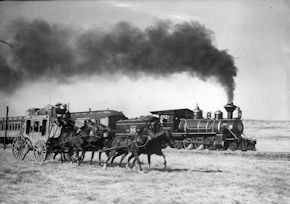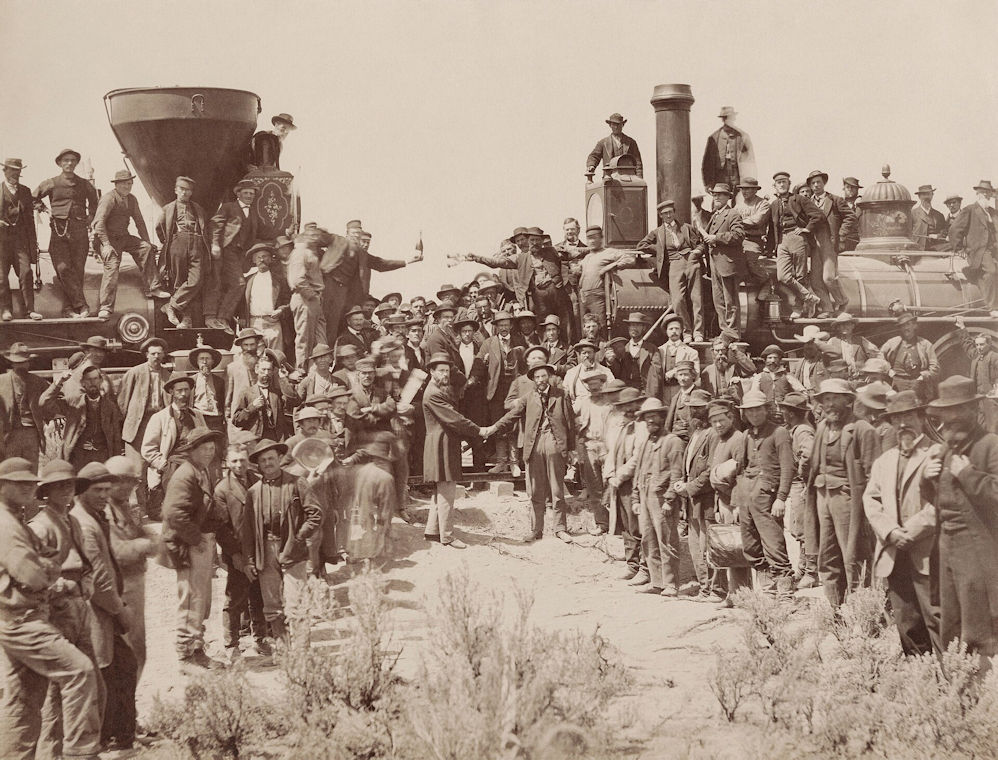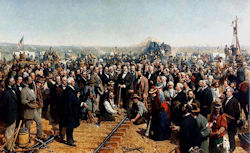
Changing of the Guard
- endeavor
- Category: General
- 109
"I almost wish I hadn't gone down that rabbit-hole—and yet—and yet—it's rather curious, you know, this sort of life!"
Alice in Alice's Adventures in Wonderland by Lewis Caroll
Railroads and the American West - The "Cliff Notes"
- endeavor
- Category: General
- 117
"The Last Spike" Thomas Hill
Railroads played a pivotal and multifaceted role in the expansion, settlement, and development of the American West. Their influence was profound, reshaping the region's economy, society, and landscape. While their impact was not without negative consequences, particularly for Native American populations, railroads undeniably served as a catalyst for the transformation of the Western United States.
One of the most significant contributions of railroads was facilitating westward expansion and settlement. Before their advent, westward travel was a daunting and arduous undertaking. Railroads revolutionized travel a changing of the guard), making it faster, easier, and more affordable, sparking a surge in westward migration. The federal government's land grants to railroad companies incentivized construction, and these companies further encouraged settlement by selling land at attractive prices and establishing towns along their routes. This accessibility transformed the West from a sparsely populated wilderness into a burgeoning region.
Furthermore, railroads drove significant economic development in the West. They provided a fast and efficient means of transporting goods, enabling the shipment of raw materials to eastern markets and manufactured goods to the West. This facilitated the development of a national market and stimulated industrialization. The exploitation of the West's rich natural resources was also made possible by railroads, which allowed for the extraction and transportation of coal, timber, and precious metals. Additionally, railroads played a crucial role in the development of Western agriculture, allowing farmers to transport their crops and livestock to distant markets and transforming the West into a major agricultural region.
Railroads also transformed the landscape and society of the West. Railroad depots became hubs of economic activity, leading to the creation of towns and cities along the rail lines. These settlements served as centers for commerce and transportation, shaping the demographic and economic landscape. However, the expansion of railroads had a devastating impact on Native American populations, disrupting their traditional ways of life, encroaching on their lands, and facilitating forced relocations. The completion of the Transcontinental Railroad in 1869 was a momentous event that physically connected the East and West coasts, fostering national unity and facilitating communication, trade, and cultural exchange. This connection helped to forge a stronger sense of national identity and paved the way for the West's full integration into the United States.

First Transcontinental Railroad. At center left, Samuel S. Montague, Central Pacific Railroad, shakes hands with Grenville M. Dodge, Union Pacific Railroad (center right)
Central Pacific - Jupiter (Replica) Union Pacific - #119 (Replica)


